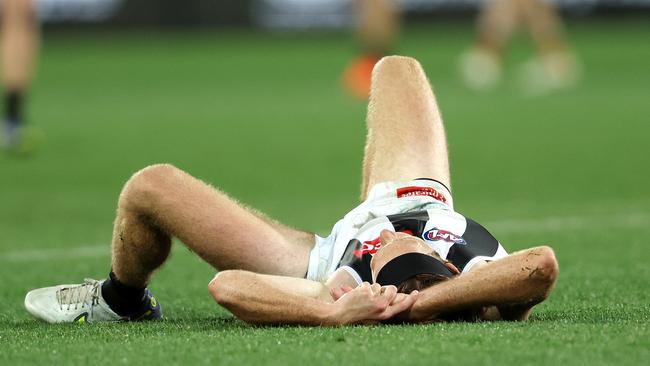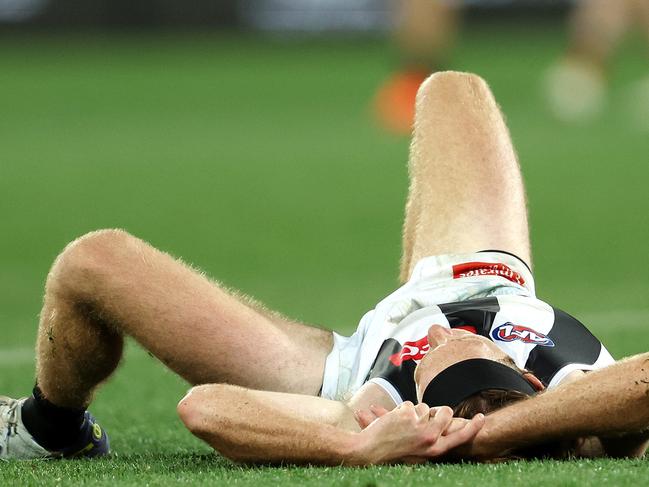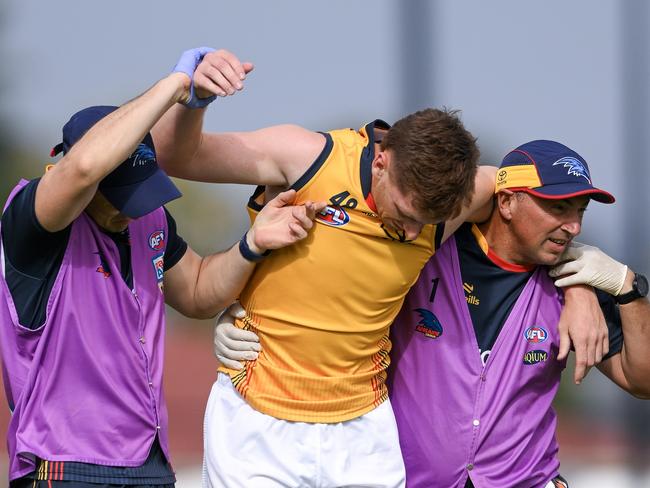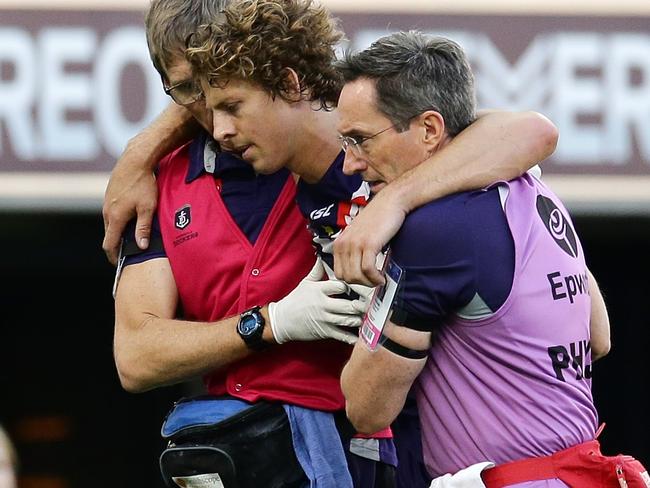AFL players to have ‘concussion passports’ in next step of league’s head knock crackdown
AFL players and draftees will have their concussion history examined, with calls for annual baseline screening to be introduced as part of the league’s crackdown.

AFL
Don't miss out on the headlines from AFL. Followed categories will be added to My News.
AFL players will have concussion passports introduced this year as the game ramps up its monitoring of head trauma.
The AFL has detailed its list of guidelines, after it announced it was retaining its minimum 12-day stand down and introducing a 21-day stand down for community footballers who have suffered a concussion.
The AFL also said on Thursday that trialling new head protection was not on the radar despite AFL medical staff telling the AFLPA and player managers at a meeting on Wednesday that they were looking at trialling new helmets in community football this year.

The AFL’s screening guidelines say all new players to a club, including draftee and players transferred from other clubs, “must undergo detailed concussion history to determine the number of previous concussions sustained, history of recovery from concussion(s), and the player’s previous management of concussion(s)”.
“At a minimum, all players should have annual pre-season baseline testing that includes neurological assessment, SCAT (test), and a computerised screening cognitive test,” the AFL said.
“A baseline Vestibular Ocular Motor Screening (VOMS) test from the Sport Concussion Office Assessment Tool 6th edition may also be helpful.”

The AFL said a player’s concussion history would be a “consideration for a longer time to return to play, and/or further baseline testing such as formal neuropsychological testing, neuro-imaging and/or referral to a specialist with expertise in the assessment and management of concussion”.
“Annual baseline testing promotes ongoing discussion with players and facilitates interpretation of post-injury test scores, which may improve decisions regarding diagnosis and assessment of recovery,” it said.

It was reported last year that clubs were pushing for concussion passports for potential draftees, with data collected from when a junior player started playing full contact sport and that would later allow clubs to consider the state of a player’s brain before being drafted.
The fear, though, was players would not self-report concussion because it might limit their chances of getting drafted.
It’s been widely reported that Collingwood’s Nathan Murphy is believed to have suffered 10 concussions throughout his junior and senior career.
One club figure told the Herald Sun passports for potential draftees would help recruiters.
“The key factor in recruiting is relying on accurate information to make an informed investment,” they said.
“If the information is not accurate then there’s a high risk for failure.”




